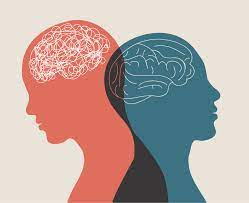Recent news that Senator John Fetterman (D-PA) checked himself into Walter Reed Medical Center to receive in-patient treatment for clinical depression has drawn attention to encouraging and making it acceptable for men to seek treatment.
It is said that his treatment follows his stroke last May, which left him with auditory processing issues. While Fetterman has not disclosed any connection it is said to be that those who have suffered a stroke typically have an increased risk for depression than the general population, according to research published last year in the American Heart Association journal Stroke, The reasons for these increased risks vary, but for many people recently diagnosed with a chronic illness, can have a major effect on the trajectory of one’s life, according to Meghan Beier, PhD, a rehabilitation psychologist and assistant professor of physical medicine and rehabilitation at Johns Hopkins Medicine.
So Why do men seek mental health treatment less than women?
Decades of research shows that men are far less likely to seek therapy. Some researchers and clinicians believe these common signs of depression (sadness, feelings of worthlessness, irritability, and loss of interest in previously enjoyable activities) may not resemble most symptoms men experience during a period of depression. Although research is just beginning to support the idea of a “male-based depression,” it is possible that men may instead express their depression in terms of increases in fatigue, irritability, and anger. Research has also suggests that men are more prone to addictive behaviors, particularly alcohol dependence/abuse and substance use disorder, which can mask the signs of depression, making it harder to detect and treat effectively.
“Several lines of research evidence suggest that men and boys face a double-bind when it comes to mental health problems,” said Ryon McDermott, PhD, president of APA’s Division 51 (Society for the Psychological Study of Men and Masculinities). He noted that specifically, males suffer in silence when they internalize restrictive gender roles that prohibit psychological help-seeking because it is seen as weak or “unmanly.” Therefore, some males are constricted in their ability to cope with psychological distress, and this further exacerbates their problems.
What does depression look like?
Major depression is one of the most common mental health disorders in the United States. An estimated 21 million adults, approximately 8.4% of U.S. adults, experienced at least one major depressive episode in 2020, according to data from the National Institute of Mental Health.
It is important to note that everyone experiences sadness at times, however depression is something much more serious. Depression is what can be considered as extreme sadness or despair that lasts more than a few days. Depression can interfere with your daily activities and can even cause physical symptoms such as pain, weight loss/gain, sleep disruptions, or lack of energy.
Some depressive symptoms may also include an inability to concentrate, feelings of worthlessness or excessive guilt, and even thoughts of death or suicide. In such cases of suicidal ideation or severe or treatment-resistant depression, a short hospital stay may be needed to help someone recover in a safe and stable environment.
How can psychologists help with depression among those with chronic illnesses?
Often times I have found most people are not aware there are various types of psychologists with specialties for a multitude of health related or mental health related issues. There are three subsets of psychologists who specialize in working with patients experiencing medical issues: rehabilitation psychologists, health psychologists, and neuropsychologists.
These psychologists often work as part of integrated care teams within hospital settings, working in tandem with physicians, nurses, psychiatrists, and other care providers to diagnose physical and psychological health problems, plan and provide treatment, and evaluate whether that treatment is effective.
Psychologists are well suited to not only recognize individual factors impacting patient well-being but can identify familial and systemic patterns that contribute to patient problems and can recommend or implement interventions or work with others to address the issues.
As a rehabilitation psychologist specializing in patients with multiple sclerosis, Beier said one of the biggest things she works on with newly diagnosed patients is the adjustment to living with a chronic illness. She will often start by discussing with the patient how their new diagnosis has impacted their everyday life and changed the life trajectory they expected.
It’s important to know that depression is much more common among those with chronic illnesses and the earlier that people seek treatment—even if they’re not having intense symptoms of depression—the better able they will be to learn coping or adjustment strategies. If you or someone you know is struggling with depression, or an older adult dealing with the aftermath of a major medical ailment reach out for help, even if just to ask questions.
If you are in need of help with finding the right psychologist or resource I am here to help. Reach out at nsightme. com



